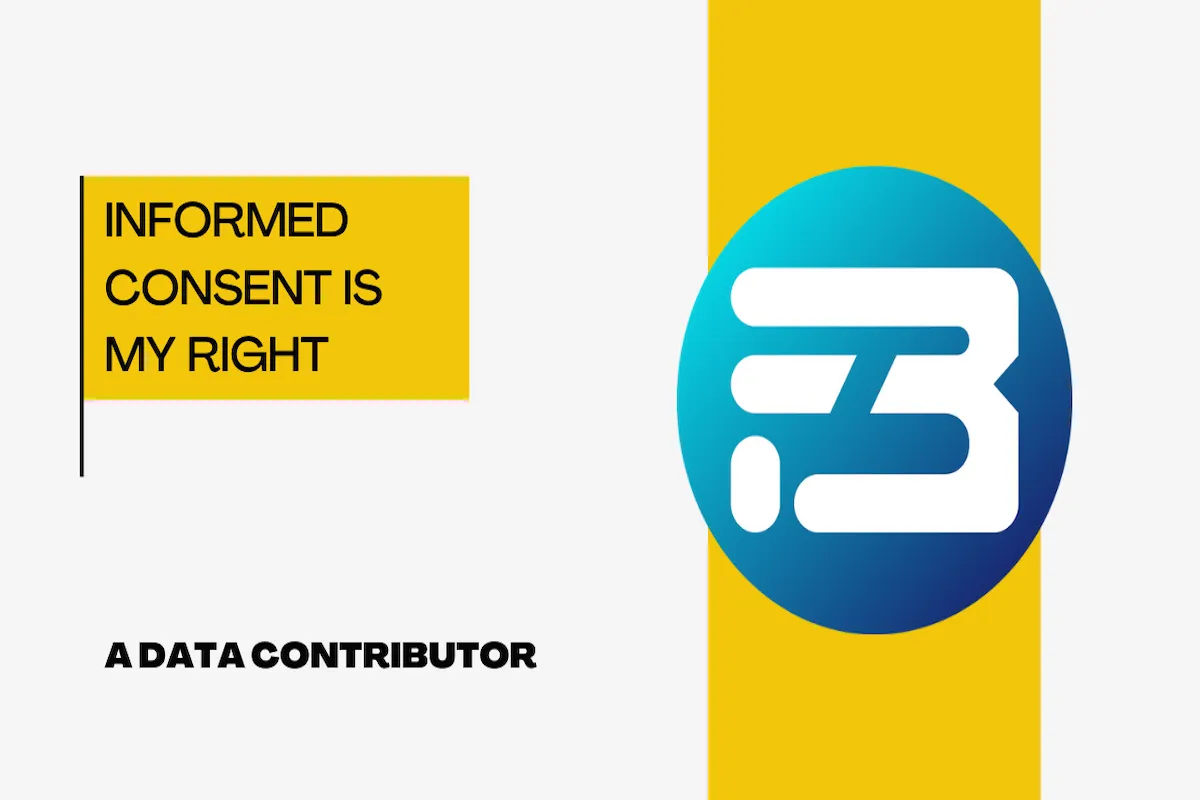In our rapidly evolving, data-driven world, the influence of Artificial Intelligence looms large, shaping the very fabric of our future. Everyone is talking about the AI-developing companies, but a few talk about the data contributors and their consents. Many enterprises that have developed Generative AI are facing legal battles as they don’t have informed consent from the data contributors, and there is no doubt that many are unaware of how their data is going to be used in AI development.
The development of AI begins with the collection of training data, which serves as the foundation upon which AI systems learn and make decisions. However, this critical stage of data collection must be underpinned by a strong commitment to informed consent.
In this blog, we explore why informed consent is imperative when collecting training data for Data-Centric AI.
The Significance of Data-Centric AI
We are supporters of data-centric AI that uses ethically collected data from users. Because not only data but the data contributors are shaping this AI world.
Data-Centric AI systems are really good at learning and making decisions. They need a lot of training data to do this, and the data can be about anything, from what TV shows you like to your medical records.
Data-centric AI can lead to better solutions for us; it could be used to develop new medical treatments, traffic solutions, and personalized learning experiences. It has the potential to do a lot of good, but it also has the potential to be misused. That's why it's important to get people's consent before using their data. Informed consent means that people know what their data is being used for and that they agree to it.
If we get people's consent and use their data ethically, Data-Centric AI can be a force for good. But if we don't, it could have negative consequences.
The Role of Training Data
Training data is the lifeblood of AI. It's the dataset from which AI systems draw patterns, learn, and generalize. It can encompass a wide range of information, from text and images to sensor data and user interactions. The quality and diversity of this data directly impact the AI system's performance and capabilities.
On the other side of the world, where people face legal challenges, you can partner with us to get high-quality, ethically collected training data to build an ethical AI.
Informed consent is the process of obtaining permission from a person to use their data for a specific purpose. This permission should be given freely and voluntarily, and the person should be fully informed about the potential risks and benefits of having their data used.
Respect for Autonomy: The Data Contributor
Informed consent is fundamentally about respecting an individual's autonomy over their data. It allows people to make informed decisions about how their data is used and whether they want to contribute to AI training datasets.
Asking contributors about their choice to contribute to the data collection increases our trust in them.
Transparency
Informed consent ensures transparency in the data collection process. It requires clear communication about what data is being collected, how it will be used, and who will have access to it. This transparency builds trust.
As a Training data collector or contributor, having a clear idea about the data's use can lead to high quality training data. We have observed this phenomenon that when we share the intent and use of data, the contributors feel more responsible for its quality and timely delivery.
 Ethical Considerations
Ethical Considerations
AI systems often deal with personal and sensitive information. Informed consent is essential to ensuring that the collection of such data is done ethically and with due respect for privacy.
Legal Compliance
Many data protection laws and regulations mandate the obtaining of informed consent when collecting personal data. Failure to comply can lead to legal consequences.
Risk Mitigation
Informed consent also serves as a risk mitigation strategy. It allows individuals to assess the potential risks associated with sharing their data and make decisions accordingly.
Accountability
Organizations that prioritize informed consent demonstrate accountability for their data practices. This accountability encourages responsible data handling.
We hereby consent to our data contributors that we will always share each and every detail that is required in an informed consent to safeguard your interests and will continuously support ethical AI.
While the ethical and legal importance of informed consent is evident, there are challenges in obtaining it for training data:
Data Availability
In some cases, obtaining consent from individuals whose data is included in large training datasets can be challenging.
Whenever we do huge collections, it's very difficult to collect consent from all individuals, and to tackle this challenge, we have built our crowd platform where people can first discuss the project with our project managers and give consent to work on a data collection project.
Third-party Data
When data is collected from third-party sources, it may not always be feasible to obtain informed consent directly from the individuals to whom the data pertains.
We are very proud to say that we don’t work with any third parties; we always work with individuals and train them for specific tasks. It helps us in two ways, we always get the direct consent of the user, and the user also gets fair pay for their work.
Our Comprehensive Approach
To address these challenges and uphold the necessity of informed consent in training data collection for Data-Centric AI, a comprehensive approach is required:
Start with Clear Communication
Communication is the key to conveying anything to anyone, and we follow the same principle. We always communicate clearly and transparently, using plain language to ensure individuals understand the process, the use of data, and the risks.
User Control
In many collections, there are different phases, and we always provide individuals with options to opt in or opt out of data collection.
Ethical Frameworks
We follow legal frameworks. Adhering to ethical frameworks and legal guidelines guides us in obtaining and respecting informed consent.
Informed consent is not just a legal obligation but a moral imperative when collecting training data for Data-Centric AI. It upholds individuals' autonomy, ensures transparency, and respects ethical considerations. By adopting a thoughtful and comprehensive approach, we can navigate the challenges and harness the power of AI while safeguarding privacy and ethical principles.
We feel accountability towards our contributors; join us in shaping the AI world.



 Ethical Considerations
Ethical Considerations


